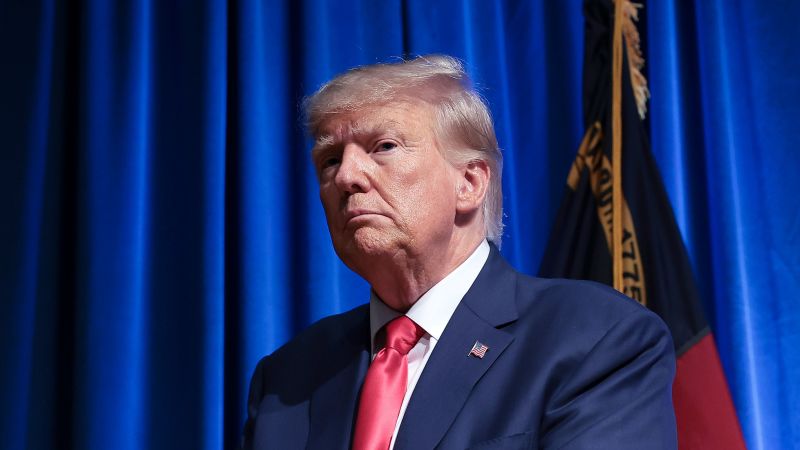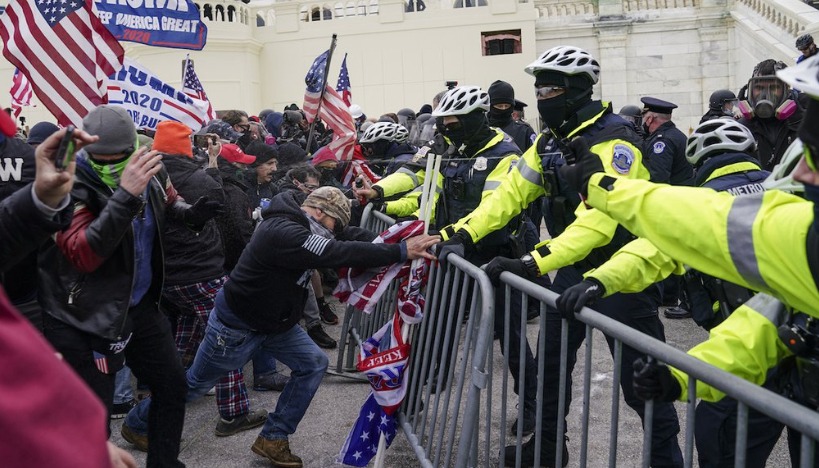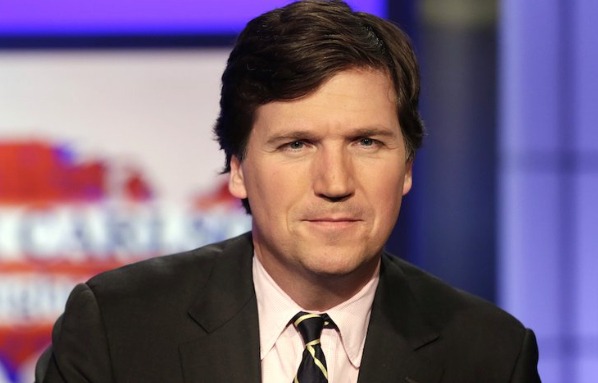Donald Trump Faces Potential Criminal Charges in Investigation
Donald Trump has been informed by special counsel Jack Smith that he is the target of a criminal investigation into the aftermath of the 2020 election. This development suggests that the former president could soon face additional criminal charges.
The letter from Smith outlined potential charges, including references to a civil rights statute from the Reconstruction era and laws related to obstruction. However, the exact nature of the charges and the specific conduct they are targeting remain unclear.
Trump’s attorneys received the target letter, which informed them of the potential charges in the investigation into efforts to overturn the 2020 election. The letter cites three statutes that Trump could be charged with, including deprivation of rights, conspiracy to commit an offense against the United States, and tampering with a witness.
This is not the first time Trump has faced legal troubles. He is already facing criminal charges in the special counsel’s probe into his unlawful retention of classified materials after leaving the White House. Additionally, he was charged earlier this year with state crimes in New York related to a hush money payment scheme during the 2016 election.
Legal analyst Norm Eisen emphasizes the significance of this investigation, stating that it poses a greater risk to Trump than any other criminal case he has faced. The potential penalties outlined in the target letter highlight the seriousness of the violations.
Despite the allegations, Trump denies any wrongdoing and claims that the investigation is politically motivated.
Understanding the Potential Charges
One potential charge Trump may face is deprivation of rights, which could involve interference with the constitutional or legal rights of Americans. This charge could range from the deprivation of all US voters’ rights to interference with the duties of then-Vice President Mike Pence or the rights of the actual electors.
Deprivation of rights charges are typically used in civil rights cases, including those related to election offenses. The statute focuses on offenses committed under the “color of any law, statute, ordinance, regulation, or custom.” If bodily injury results from the conduct, the penalties can include a prison sentence of up to 10 years.
In conclusion, the potential criminal charges against Donald Trump in the ongoing investigation into the aftermath of the 2020 election pose a significant risk to the former president. The specific charges and conduct being targeted remain uncertain, but the potential consequences are serious.New York Times Report Reveals Trump’s Potential Criminal Charges
The New York Times recently reported on a warning issued by former Deputy Attorney General Sally Yates to former President Donald Trump. The warning pertains to a deprivation of rights statute that addresses conspiracies to harm or intimidate individuals exercising their rights. This statute has been used in cases involving election interference and ballot-stuffing.
Interference with Voting Rights
According to legal experts, Trump’s alleged involvement in schemes to interfere with the recognition of votes could be seen as an interference with the voting rights of all Americans. This could potentially nullify the votes of the 81 million Americans who chose Joe Biden as their president.
Unclear Conduct that Could Trigger Charges
It remains unclear which specific actions from the post-election period could trigger charges under this statute. However, experts suggest that the fake electors scheme, calls to officials in Georgia and Arizona, and the events surrounding the January 6, 2021, certification ceremony could all be potential sources of liability.
Investigation into Election Officials’ Threats
Investigators are also scrutinizing the threats received by election officials during Trump’s campaign to subvert the election. This aspect of the investigation highlights the seriousness of the alleged interference with the democratic process.
Criminal Counterparts to the Ku Klux Klan Act
The deprivation of rights statutes are considered the criminal counterparts to the 1871 Ku Klux Klan Act. These statutes have been used in civil lawsuits against Trump and others involved in the events of January 6.
Potential Charges of Witness Tampering
One potential charge that Trump has been warned about is witness tampering. This could refer to traditional witness tampering or the obstruction of an official proceeding, which has been used to prosecute Capitol rioters. The latter charge has been a key part of the Justice Department’s strategy in prosecuting those involved in the Capitol attack.
Conspiracy Charges
Reports suggest that a conspiracy charge is also being considered. This charge could cover a wide range of conduct and involves plotting by two or more people to violate US law. Trump’s alleged involvement in a criminal conspiracy has already been invoked in litigation surrounding the House select committee’s investigation into the events of January 6.
The Potential Legal Consequences
These potential charges highlight the serious legal consequences that Trump could face for his alleged actions. As the investigation continues, it remains to be seen how these charges will unfold and what impact they will have on the former president.Federal Judge Rules Against Eastman’s Privilege Claims, Suggests Trump Engaged in Conspiracy
A federal judge, US District Judge David O. Carter, has made a significant ruling against Eastman’s assertions of privilege over certain emails. The judge found that Trump and Eastman “more likely than not” conspired to unlawfully obstruct Congress’ certification vote. This ruling points to both the obstruction of an official proceeding statute and the general conspiracy statute. In a follow-up ruling, Carter cited the broader conspiracy statute to allow the release of specific Eastman emails that suggest Trump knew some of his claims of voter fraud were inaccurate.
Smith’s Conspiracy Charge Takes a Broad View
While Smith may have different intentions for pursuing the conspiracy charge, the bigger picture is that he appears to be taking a “broad view” of a potential criminal conspiracy. Elie Honig, a former federal prosecutor and CNN legal analyst, highlights this perspective. It seems that Smith’s focus is primarily on the days and weeks leading up to January 6 and the scheme to steal the election through pressure and fraud. The charges may place more emphasis on the plotting to steal the election rather than the physical assault on the Capitol.
Unveiling the True Motives Behind the Charges
The charges being considered by Smith shed light on the motives behind the investigation. It becomes clear that the focus is not solely on the actual January 6 Capitol attack but rather on the efforts to steal the election through plotting and fraud. Elie Honig suggests that these charges will delve substantially into the conspiracy to steal the election, making it a crucial aspect of the case. The physical assault on the Capitol may be seen as the final chapter rather than the central focus.
Discover the Intriguing Details of the Conspiracy Allegations
In a recent ruling, a federal judge has dealt a blow to Eastman’s privilege claims, indicating a potential conspiracy involving Trump. This development raises questions about the true extent of Trump’s involvement in obstructing Congress’ certification vote. Additionally, Smith’s approach to the conspiracy charge suggests a broader perspective, focusing on the scheme to steal the election rather than the Capitol attack itself. Dive into the details of these allegations to uncover the intriguing twists and turns of this ongoing investigation.
Unveiling the Potential Criminal Charges Trump Faces in Special Counsel’s Probe of 2020 Election Aftermath
Introduction
The aftermath of the 2020 United States presidential election has been marred by controversy and allegations of electoral fraud. Former President Donald J. Trump, who lost the election to Joe Biden, has been at the forefront of these claims, repeatedly asserting that the election was stolen from him. As a result, a special counsel has been appointed to investigate these allegations, and it is crucial to examine the potential criminal charges that Trump may face as a result of this probe.
1. Obstruction of Justice
One potential criminal charge that Trump may face is obstruction of justice. Throughout his presidency, Trump was known for his attempts to interfere with ongoing investigations, most notably the Mueller investigation into Russian interference in the 2016 election. If the special counsel’s probe uncovers evidence of Trump obstructing justice by impeding the investigation into the 2020 election, he could face serious legal consequences.
2. Incitement of Insurrection
Another charge that Trump may face is incitement of insurrection. On January 6, 2021, a violent mob stormed the United States Capitol, resulting in multiple deaths and widespread destruction. Trump’s role in inciting this insurrection has come under scrutiny, as his speech prior to the attack contained inflammatory language and false claims about the election. If it can be proven that Trump’s actions directly contributed to the violence and chaos that unfolded that day, he could be held accountable for inciting insurrection.
3. Election Fraud
Ironically, Trump himself may face charges related to election fraud. Despite his claims of widespread fraud in the 2020 election, numerous courts, including the Supreme Court, dismissed these allegations due to lack of evidence. However, if the special counsel’s probe uncovers any evidence suggesting that Trump or his campaign were involved in any form of election fraud, he could face criminal charges related to this offense.
4. Conspiracy
Conspiracy charges may also be on the table for Trump. If the special counsel’s investigation reveals that Trump conspired with others to undermine the integrity of the election or to incite violence, he could be charged with conspiracy. This charge would require evidence of an agreement between Trump and others to commit an unlawful act, further complicating the legal landscape for the former president.
Conclusion
As the special counsel’s probe into the aftermath of the 2020 election unfolds, the potential criminal charges that Trump may face are becoming increasingly apparent. From obstruction of justice to incitement of insurrection, election fraud, and conspiracy, the former president’s actions and statements are under intense scrutiny. It is essential to remember that these charges are speculative at this stage, and the special counsel’s investigation will ultimately determine whether there is sufficient evidence to bring criminal charges against Trump. The outcome of this probe will undoubtedly have far-reaching implications for the future of American democracy and the accountability of its leaders.








